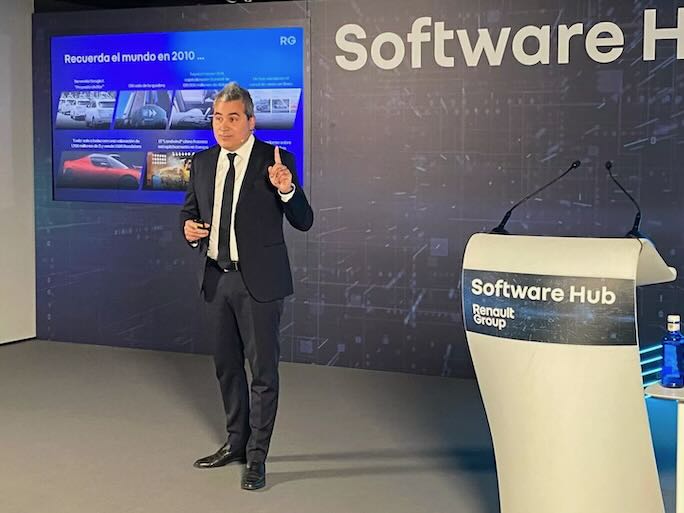Renault Inaugurates its Software Innovation Hub in Madrid

Renault’s new Software Hub aims to lead the software revolution in mobility.
Renault continues to expand its horizons in Spain with the inauguration of a new software innovation hub in Madrid. This Software Hub, established at Renault’s headquarters in the Spanish capital, emerges with an initial staff of 50 highly qualified talents, including engineers and PhDs, and plans to double its team before the end of this year.
Renault Software Hub
This centre, an integral part of Renault’s global network of mobility laboratories, has 2,800 software engineers in countries such as France, India, Korea and Spain. César Lorenzo, director of Renault’s R&D+1 centre in Valladolid, said that the initial focus of the Software Hub will be the development of driving assistance functions (ADAS), which are closely linked to connectivity and new mobility solutions.
Renault has entrusted this new Hub with the exclusive task of developing and validating ADAS systems for all Renault vehicles between 2025 and 2028. Expected innovations include side-collision emergency braking systems, new obstacle detection and improved perimeter monitoring at low speeds.
Josep Maria Recasens, Head of Renault Group Strategy and President of Renault Spain, underlined the importance of this project for the country: “If Spain was able to attract foreign investment to become the second largest automotive producer in Europe, why not aspire to be a major player in the software field? Renault is contributing to this goal.”
Renault R&D&I in Spain
This Software Hub complements the activities of Renault’s R&D&I centre in Spain, which currently employs approximately 1,000 engineers, out of a total workforce of 7,025 employees in the country, focused on the development of models manufactured in Valladolid and Palencia.
Recasens warned of the rapid transformation of the automotive sector, where software will account for 50% of a car’s value in the near future. In response to these challenges, Renault has reorganised its divisions and is collaborating with various strategic partners to maintain its competitiveness and market leadership.
The Minister of Science, Innovation and Universities, Diana Morant, praised Renault’s initiative, highlighting its impact on the position of the Spanish automotive industry globally. Morant also stressed the importance of collaboration between training centres and universities in technological projects of this calibre.